18 Oct2021
By Jacob Easley II

The New York Association of Colleges for Teacher Education (NYACTE) is hosting its annual conference jointly with the New York State Association of Teacher Education. The 2021 conference is entitled Educational Innovation for Equity and Excellence. Progressively delivered in a virtual format September 30 through November 2, all events are free of charge. It is not too late to join us for an interactive member presentation that will take place on October 21 from 1:00-3:00 p.m. EST. In addition, asynchronous (pre-recorded) paper presentations are also available.
The conference highlights the ways in which New York educator preparation programs (EPPs) and PK-12 engage in partnerships and innovations for advancing educational equity. The conference addresses ways in which state level policy and local practices address programming for greater outcomes among diverse student populations and school communities. The conference concludes with our keynote speaker Elaine Gross, who will challenge the profession in its efforts for racial justice.
14 Oct2021
By Rachel Walker Bowman
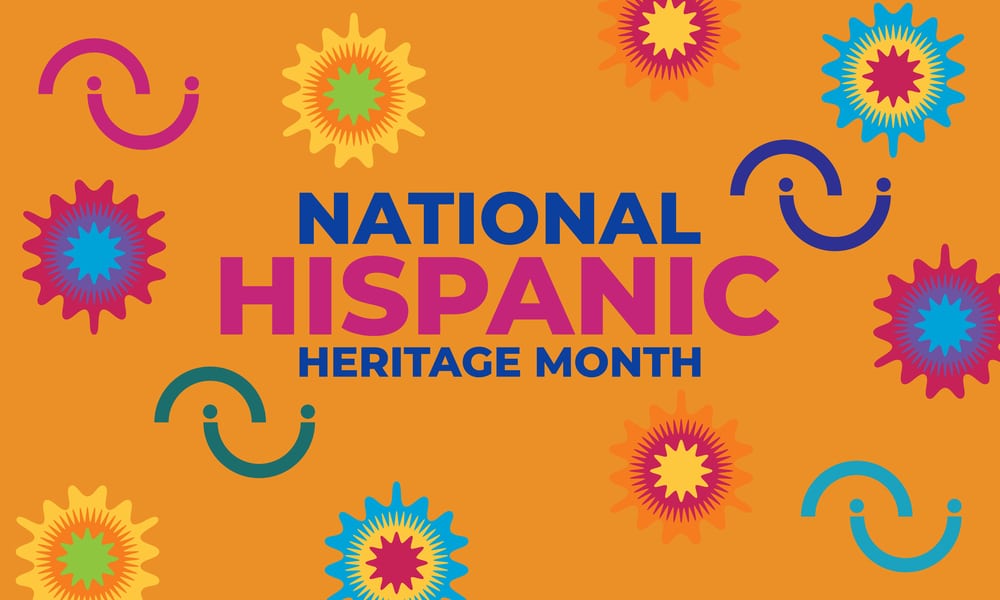
When Mildred Boveda, associate professor of special education at Penn State University, was filling out some basic forms required for an academic appointment, she came to a question that made her pause:
Which of these best describes your race/ethnicity?
- White/ Non-Hispanic
- Black/ Non-Hispanic
- Hispanic
The list went on.
Boveda, an Afro-Latina woman of Dominican descent and complex intersecting identities, had always felt more at home in the Black community. But the erasure of her Latina roots, even just through a checkmark, was not something she could reconcile with.
She checked Hispanic.
07 Oct2021
By Katrina Norfleet
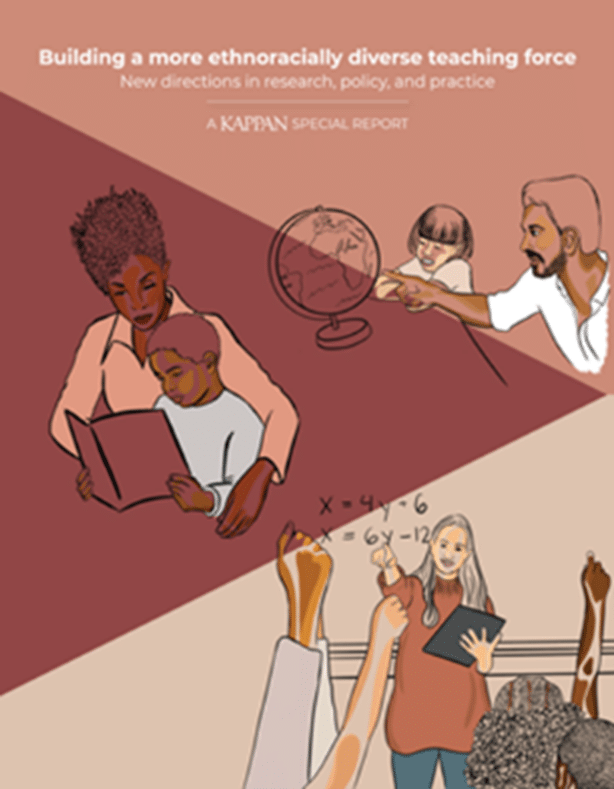 Phi Delta Kappan (PDK) recently released a special report about teacher workforce diversity, Building a more ethnoracially diverse teaching force: New directions in research, policy, and practice, guest edited by AACTE members Conra Gist (University of Houston) and Travis Bristol (University of California, Berkeley). The special report highlights the forthcoming Handbook of Research on Teachers of Color (AERA, 2022) by Gist and Bristol, featuring research by Black, Indigenous, and People of Color (BIPOC) educators on developing a more diverse teacher workforce.
Phi Delta Kappan (PDK) recently released a special report about teacher workforce diversity, Building a more ethnoracially diverse teaching force: New directions in research, policy, and practice, guest edited by AACTE members Conra Gist (University of Houston) and Travis Bristol (University of California, Berkeley). The special report highlights the forthcoming Handbook of Research on Teachers of Color (AERA, 2022) by Gist and Bristol, featuring research by Black, Indigenous, and People of Color (BIPOC) educators on developing a more diverse teacher workforce.
The Kappan report provides brief overviews of the 11 domains of inquiry that are explored in greater length in the handbook by Gist and Bristol, along with a wide range of contributors. To bring Teachers of Color, Indigenous Teachers, and other educators into the conversation about how best to diversify the teaching profession, each domain pairs research briefs with teacher-written testimonies. The domains of inquiry include the following:
06 Oct2021
By Nicole Dunn
 As of September 25, 2021, there are 11 states—Arizona, Florida, Georgia, Idaho, Iowa, New Hampshire, Oklahoma, South Carolina, Texas, Tennessee, Utah—that have passed restrictions on racial justice education in public K-12 schools. As programs that prepare educators to enter classrooms during this current onslaught of education censorship, it is imperative to ensure they are prepared to balance the harsh realities of these bills with their abilities to affirm student identities by teaching a curriculum that is a full and accurate representation of our nation’s history across disciplines.
As of September 25, 2021, there are 11 states—Arizona, Florida, Georgia, Idaho, Iowa, New Hampshire, Oklahoma, South Carolina, Texas, Tennessee, Utah—that have passed restrictions on racial justice education in public K-12 schools. As programs that prepare educators to enter classrooms during this current onslaught of education censorship, it is imperative to ensure they are prepared to balance the harsh realities of these bills with their abilities to affirm student identities by teaching a curriculum that is a full and accurate representation of our nation’s history across disciplines.
AACTE invites you to join “Black Lives Matter at School ‘Year of Purpose’” in a national day of action to #TeachTruth about structural oppression on George Floyd’s birthday, Thursday, October 14. This day of action is co-sponsored by the African American Policy Forum and is supported and endorsed by the Zinn Education Project (a project of Rethinking Schools and Teaching for Change), National Education Association, Alliance for Quality Education, NYU Metropolitan Center for Research on Equity and the Transformation of Schools, and NYC Coalition for Educational Justice.
22 Sep2021
By Weade James
 The Consortium for Research-Based and Equitable Assessments (CREA) is seeking your help to recruit teacher candidates, teachers, and faculty for its upcoming focus groups. The Consortium, which is comprised of educator preparation programs (EPPs) and state and local education agency representatives across 14 states, is examining the processes and considerations that states use to determine cut scores for entrance (i.e., Praxis Core) and teacher licensure examinations.
The Consortium for Research-Based and Equitable Assessments (CREA) is seeking your help to recruit teacher candidates, teachers, and faculty for its upcoming focus groups. The Consortium, which is comprised of educator preparation programs (EPPs) and state and local education agency representatives across 14 states, is examining the processes and considerations that states use to determine cut scores for entrance (i.e., Praxis Core) and teacher licensure examinations.
Through data collection of key stakeholders, analysis of trends and policies, and shared learning, the Consortium will produce recommendations and guidelines to establish equitable criteria for setting qualifying scores and model state policies that promote equity and diversity in the profession.
17 Sep2021
By Rangel Zarate
This article is a personal reflection of the 2021 Holmes Policy Institute by attendee Rangel Zarate.
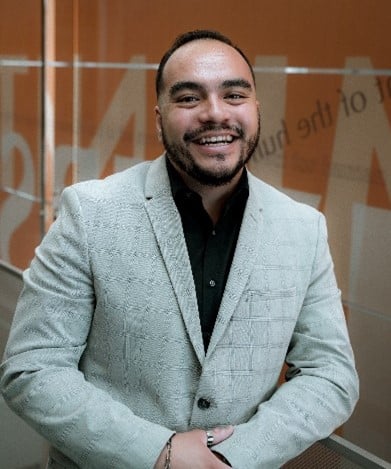 This year’s AACTE Holmes Policy Institute was rich with memorable discussions about culturally-relevant care, digital technology in the classroom, and equity issues in schools.
This year’s AACTE Holmes Policy Institute was rich with memorable discussions about culturally-relevant care, digital technology in the classroom, and equity issues in schools.
The year 2021 has led to an unexpected metamorphosis in education and has forced many instructors and educational leaders to rethink the way they approach student learning and their own teaching practices. In our conference panel discussion, “Advancing Educational Equity Post-COVID” AACTE staffer and associate professors at Columbia University’s Teachers College Deltra Price-Dennis and Yolanda Sealey-Ruiz invited us to reflect on our own thoughts surrounding this new culture of change in educational institutions.
17 Aug2021
By Carol Stinnett
This article originally appeared on the UCF Today and is reprinted with permission.
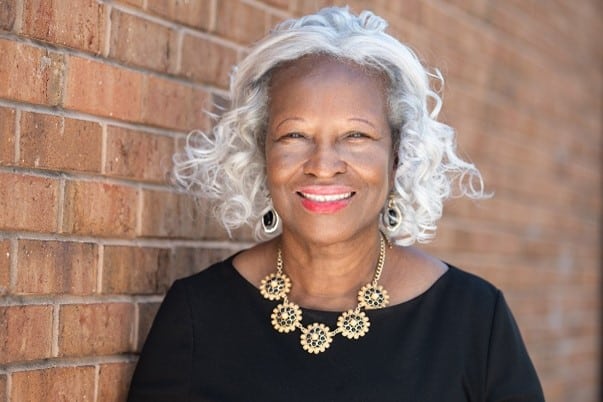 Martha Lue Stewart, the first Black woman promoted to the rank of professor at UCF, retired on August 7. (Photo by Amy Floyd)
Martha Lue Stewart, the first Black woman promoted to the rank of professor at UCF, retired on August 7. (Photo by Amy Floyd)
If one word could encapsulate the journey that Martha Lue Stewart has had at UCF, it’s grateful. As the professor submitted grades for her final course last week and packed up the books, photos and other mementos in her office, she reminisced on countless stories.
As the first Black woman promoted to the rank of professor at UCF, Stewart has been instrumental in helping build a diverse and inclusive campus. Early on, she served as chair of the Diversity Programming Committee that organizes events like Diversity Week. Stewart was also actively involved in the Black Faculty and Staff Association, where she served as president from 1998–99. Her first service project with the association involved launching the university’s first Martin Luther King, Jr. Celebration.
“I enjoyed having a place where I could meet other colleagues of color,” she says. “It felt like a family and that’s amazing.”
17 Aug2021
By Rebecca Koenig

Graduates of Call Me MISTER: Photo by Patrick Wright, Clemson University, Photographic Services-University Relations.
This article originally appeared in EdSurge and is reprinted with permission.
When Alphonso Richard Jr. walked into his first teacher education course at Clemson University, he experienced a shock.
“Being in a class where you’re the only male, I didn’t know where to sit,” he says. “Girls were looking like, ‘Oh my goodness, is that a guy in here?’”
Compounding the confusion: Most women in the room were white, and Richard is Black. The dissonance was enough to send a shiver of doubt through the aspiring educator’s mind.
“It was a scared, hesitant feeling at first,” Richard says. “Am I meant to be here? Is this for me?”
It takes courage to enter a space where you’re not sure you belong. That’s the kind of threshold that Black men training to become educators have to cross many times. They make up only 2 percent of U.S. public school teachers (men overall compose 24 percent). They’re also underrepresented in college teacher-preparation programs, as education is “one of the least diverse major fields in higher education,” according to a 2019 report from the American Association of Colleges for Teacher Education.
06 Jul2021
By Jacqueline Rodriguez
This article originally appeared in Diverse Issues in Higher Education and is reprinted with permission.
Teacher diversity is invaluable for all students. Having a teacher of color at the helm of a classroom benefits all learners, both academically and through deep and enriching social emotional connections. However, according to The White House’s fact sheet for The American Families Plan, while teachers of color can have a particularly strong impact on students of color, the U.S. Bureau of Labor Statistics reports that only one in five teachers are people of color, compared to more than half of K-12 public school students. That is why President Biden is calling on Congress to invest $9 billion in American teachers, addressing shortages, improving training and supports for teachers, and boosting teacher diversity.
Why teacher diversity matters
Representation in the classroom matters. Having a diverse teacher workforce connects cultures, sets high expectations, and reduces implicit bias. Far too often, students of color feel isolated, underrepresented or mistreated, which leads to lower graduation and higher dropout rates. Decades of research has demonstrated that teachers of color can help close access and opportunity gaps for students of color while being vital to the well-being of students of all races. With a teacher of color leading a classroom, students of color see themselves represented and identify with them as role models. A diverse teacher workforce not only supports a student’s academic and social and emotional outcomes, it can lead classroom students to consider becoming educators themselves.
14 Jun2021
By Linda Minor
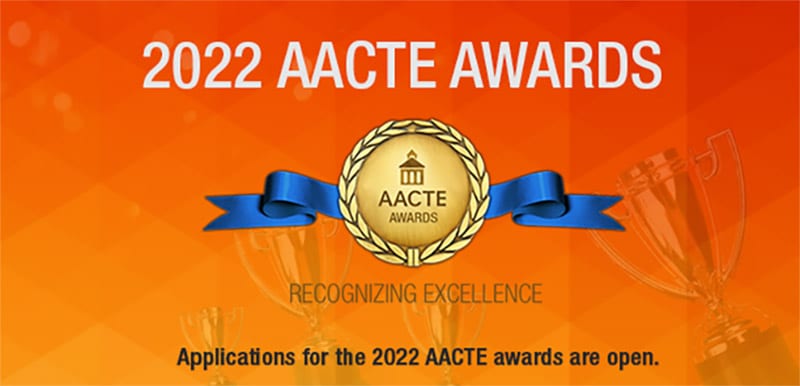 Why wait to submit your application for the 2022 AACTE Awards? Avoid the stress of a last-minute rush and submit your entry early. AACTE Awards can be either self-nominated or nominated by a third party. To submit your nomination, visit AACTE’s online submission site.
Why wait to submit your application for the 2022 AACTE Awards? Avoid the stress of a last-minute rush and submit your entry early. AACTE Awards can be either self-nominated or nominated by a third party. To submit your nomination, visit AACTE’s online submission site.
Winning entries will be selected by AACTE’s Programmatic Advisory Committees and recognized formally at the 2022 Annual Meeting, March 4-6, in New Orleans, LA.
This is the 26th year AACTE’s awards program has been recognizing member institutions’ exemplary programs as well as individuals who have made noteworthy contributions to education preparation. For an overview of the 2021 award winners, see this press release.
08 Jun2021
By Katrina Norfleet
Last month, President Biden called for an unprecedented investment in his FY 22 budget proposal to begin to redress the chronic inequities in our nation’s education system. In a new playbook, the Partnership for the Future of Learning offers a set of high-impact strategies and examples for recruiting, preparing, developing, and retaining high-quality teachers and bringing greater racial, ethnic, and linguistic diversity to the profession.
The 152-page Teaching Profession Playbook was developed by the Learning Policy Institute and the Public Leadership Institute in collaboration with 26 organizations and five individual experts. The digital playbook includes examples of legislation; a curated list of publications, by topic, for further reading; a guide to talking about teacher shortages and strengthening the profession; and examples of research-based policies.
07 Jun2021
By Amy Carlson Gustafson
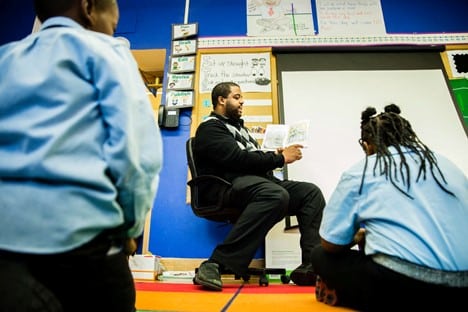
This article originally appeared on the University of St. Thomas Newsroom and is reprinted with permission.
The School of Education at St. Thomas is making inroads to increase the number of people of color who choose to become teachers, and national organizations are recognizing its efforts. In March, the school received notice that the Association of Colleges for Teacher Education (AACTE) accepted its proposal to be part of a consortium to increase equitable access to teaching.
Only around 6% of licensed Minnesota teachers identified as Black, Indigenous and people of color (BIPOC), while 38% of students in the state are nonwhite, according to state data. In efforts to help close that gap, the School of Education will join with other AACTE members to examine entrance requirements for teacher preparation programs. This collaboration exemplifies just one more way in which the school has been working to grow the number of diverse teachers through a variety of programs, including key partnerships.
03 Jun2021
By Kristin Hamilton
The National Board of Professional Teaching Standards is an anti-racist and inclusive organization. We believe that educators must help students consider their role in a diverse world, value individual differences, and—especially in times such as these—we believe in the power of the teaching profession to defend what is good and right for all people.
The National Board for Professional Teaching Standards is seeking applicants from the educator preparation community to serve on the committee that will develop standards in the areas of diversity, equity, and inclusion. These Board certification standards for practicing teachers also impact teacher preparation programs and assessments, professional learning programs, and state licensure systems across the country. The 10-12 committee members will receive an honorarium and will be representative of the diversity among teaching professionals and the students and communities they serve.
24 May2021
By Nicole Dunn
 AACTE partners with organizations that share its view that an intersectional lens is critical when educators are examining structures and practices that increase student discrimination and disadvantages. As Asian American and Pacific Islander Heritage Month comes to an end and Pride Month begins, one of AACTE’s partners, Human Rights Campaign’s Project THRIVE, is hosting a webinar with panelists that represent the intersection of these communities on May 27, 2:00 p.m. ET.
AACTE partners with organizations that share its view that an intersectional lens is critical when educators are examining structures and practices that increase student discrimination and disadvantages. As Asian American and Pacific Islander Heritage Month comes to an end and Pride Month begins, one of AACTE’s partners, Human Rights Campaign’s Project THRIVE, is hosting a webinar with panelists that represent the intersection of these communities on May 27, 2:00 p.m. ET.
14 May2021
By Nicole Dunn
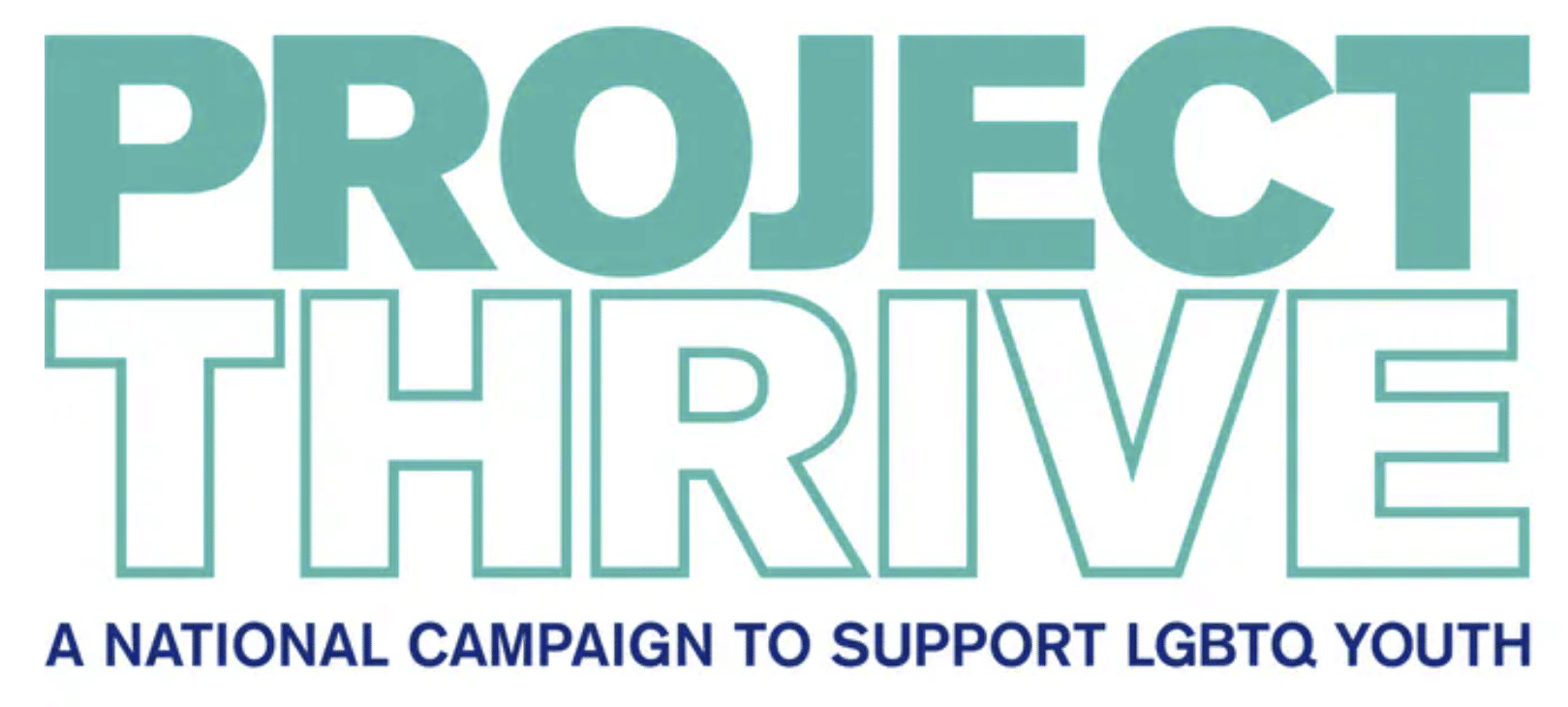 AACTE is honored to share that it has joined the leaders from the nation’s largest health, education, child welfare, legal, and juvenile justice organizations in support of the Human Rights Campaign’s Project THRIVE, a multi-year national campaign to create more equitable, inclusive support systems and communities for LGBTQ youth. The initiative will build the skills and capacities of all youth-serving professionals to better meet the needs of LGBTQ young people.
AACTE is honored to share that it has joined the leaders from the nation’s largest health, education, child welfare, legal, and juvenile justice organizations in support of the Human Rights Campaign’s Project THRIVE, a multi-year national campaign to create more equitable, inclusive support systems and communities for LGBTQ youth. The initiative will build the skills and capacities of all youth-serving professionals to better meet the needs of LGBTQ young people.
Every organization that is part of Project THRIVE has a unique role to play in strengthening family permanence and support, improving health and well-being, increasing school connection, and building a foundation of resilience so that all LGBTQ youth can thrive. Project THRIVE is committed to an intersectional approach in this work, and to ensuring that LGBTQ youth of color and those who are system-involved or have a history of homelessness are a priority focus.









 Phi Delta Kappan (PDK) recently released a special report about teacher workforce diversity, Building a more ethnoracially diverse teaching force: New directions in research, policy, and practice, guest edited by AACTE members Conra Gist (University of Houston) and Travis Bristol (University of California, Berkeley). The special report highlights the forthcoming Handbook of Research on Teachers of Color (AERA, 2022) by Gist and Bristol, featuring research by Black, Indigenous, and People of Color (BIPOC) educators on developing a more diverse teacher workforce.
Phi Delta Kappan (PDK) recently released a special report about teacher workforce diversity, Building a more ethnoracially diverse teaching force: New directions in research, policy, and practice, guest edited by AACTE members Conra Gist (University of Houston) and Travis Bristol (University of California, Berkeley). The special report highlights the forthcoming Handbook of Research on Teachers of Color (AERA, 2022) by Gist and Bristol, featuring research by Black, Indigenous, and People of Color (BIPOC) educators on developing a more diverse teacher workforce. As of September 25, 2021, there are 11 states—Arizona, Florida, Georgia, Idaho, Iowa, New Hampshire, Oklahoma, South Carolina, Texas, Tennessee, Utah—that have passed restrictions on racial justice education in public K-12 schools. As programs that prepare educators to enter classrooms during this current onslaught of education censorship, it is imperative to ensure they are prepared to balance the harsh realities of these bills with their abilities to affirm student identities by teaching a curriculum that is a full and accurate representation of our nation’s history across disciplines.
As of September 25, 2021, there are 11 states—Arizona, Florida, Georgia, Idaho, Iowa, New Hampshire, Oklahoma, South Carolina, Texas, Tennessee, Utah—that have passed restrictions on racial justice education in public K-12 schools. As programs that prepare educators to enter classrooms during this current onslaught of education censorship, it is imperative to ensure they are prepared to balance the harsh realities of these bills with their abilities to affirm student identities by teaching a curriculum that is a full and accurate representation of our nation’s history across disciplines. The
The  This year’s AACTE Holmes Policy Institute was rich with memorable discussions about culturally-relevant care, digital technology in the classroom, and equity issues in schools.
This year’s AACTE Holmes Policy Institute was rich with memorable discussions about culturally-relevant care, digital technology in the classroom, and equity issues in schools. Martha Lue Stewart, the first Black woman promoted to the rank of professor at UCF, retired on August 7. (Photo by Amy Floyd)
Martha Lue Stewart, the first Black woman promoted to the rank of professor at UCF, retired on August 7. (Photo by Amy Floyd)
 Why wait to submit your application for the 2022 AACTE Awards? Avoid the stress of a last-minute rush and submit your entry early. AACTE Awards can be either self-nominated or nominated by a third party. To submit your nomination, visit
Why wait to submit your application for the 2022 AACTE Awards? Avoid the stress of a last-minute rush and submit your entry early. AACTE Awards can be either self-nominated or nominated by a third party. To submit your nomination, visit 
 AACTE partners with organizations that share its view that an intersectional lens is critical when educators are examining structures and practices that increase student discrimination and disadvantages. As Asian American and Pacific Islander Heritage Month comes to an end and Pride Month begins, one of AACTE’s partners, Human Rights Campaign’s Project THRIVE, is hosting a webinar with panelists that represent the intersection of these communities on May 27, 2:00 p.m. ET.
AACTE partners with organizations that share its view that an intersectional lens is critical when educators are examining structures and practices that increase student discrimination and disadvantages. As Asian American and Pacific Islander Heritage Month comes to an end and Pride Month begins, one of AACTE’s partners, Human Rights Campaign’s Project THRIVE, is hosting a webinar with panelists that represent the intersection of these communities on May 27, 2:00 p.m. ET. AACTE is honored to share that it has joined the leaders from the nation’s largest health, education, child welfare, legal, and juvenile justice organizations in support of the Human Rights Campaign’s Project THRIVE, a multi-year national campaign to create more equitable, inclusive support systems and communities for LGBTQ youth. The initiative will build the skills and capacities of all youth-serving professionals to better meet the needs of LGBTQ young people.
AACTE is honored to share that it has joined the leaders from the nation’s largest health, education, child welfare, legal, and juvenile justice organizations in support of the Human Rights Campaign’s Project THRIVE, a multi-year national campaign to create more equitable, inclusive support systems and communities for LGBTQ youth. The initiative will build the skills and capacities of all youth-serving professionals to better meet the needs of LGBTQ young people.